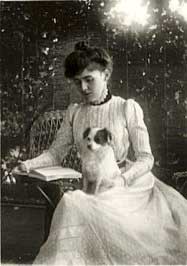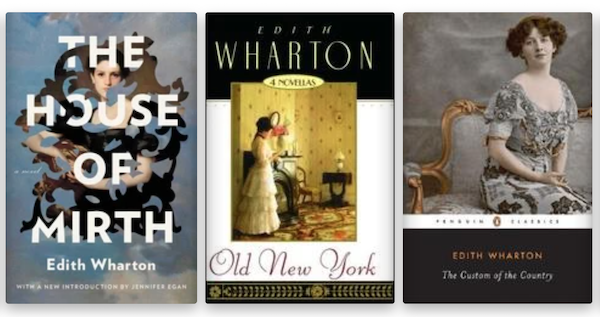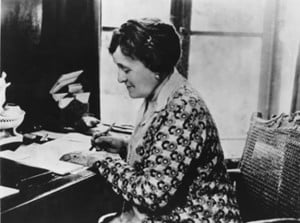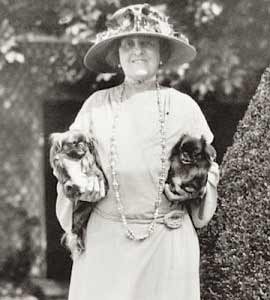A Backward Glance: Edith Wharton’s Reflections on Her Writing Life
By Nava Atlas | On February 8, 2015 | Updated September 21, 2022 | Comments (0)

From all outward appearances, Edith Wharton, an heiress from one of late-19th century’s wealthiest families, seemed to be a woman in charge of her life.
But just beneath the surface, she was deeply insecure, especially about her writing abilities. Her family disapproved of her taking up the pen, and her society friends just didn’t care — or understand.
Wharton described how she overcame her obstacles with a great deal of humility. The following passages are from her memoir, A Backward Glance (1934).
A first attempt at a novel, rejected by Mother
“My first attempt (at age of eleven) was a novel, which began: ‘Oh, how do you do, Mrs. Brown?’ said Mrs. Tomkins. ‘If only I had known you were going to call I should have tidied up the drawing-room.’
Timorously I submitted this to my mother, and never shall I forget the sudden drop of my creative frenzy when she returned it with the icy comment: ‘Drawing-rooms are always tidy.'”
This was so crushing to a would-be novelist of manners that it shook me rudely out of my dream of writing fiction, and I turned to poetry instead. It was not thought necessary to feed my literary ambitions with foolscap, and for lack of paper I was driven to begging for the wrappings of the parcels delivered at the house.”
Am I no longer insignificant?
“I had written short stories that were thought worthy of preservation! Was it the same insignificant I that I had always known?
Any one walking along the street might go into any bookshop, and say “Please give me Edith Wharton’s book,” and the clerk, without bursting into incredulous laughter, would produce it, and be paid for it, and the purchaser would walk home with it and read it, and talk of it, and pass it on to other people to read!
The whole business seemed too unreal to be anything but a practical joke played on me by some occult humorist; and my friends could not have been more astonished and incredulous than I was.
I opened the first notices of the book with trembling hands and a suffocated heart. What I had done was actually thought important enough to be not only printed but reviewed! With a sense of mingled guilt and self-satisfaction I glanced at one article after another. They were unbelievably kind, but for the most part their praise only humbled me … ”
. . . . . . . . . . .

. . . . . . . . . .
At last, self-confidence
“My long experimenting had resulted in two or three books which brought me more encouragement than I had ever dreamed of obtaining, and were the means of my making some of the happiest friendships of my life.
The reception of my books gave me the self-confidence I had so long lacked, and in the company of people who shared my tastes, and treated me as their equal, I ceased to suffer from the agonizing shyness which used to rob such encounters of all pleasure.”
. . . . . . . . . .
See also: Edith Wharton’s Struggles with Self-Doubt
. . . . . . . . . .
Literary success puzzled and embarrassed old friends
“My literary success puzzled and embarrassed my old friends far more than it impressed them, and in my own family it created a kind of constraint which increased with the years.
None of my relations ever spoke to me of my books, either to praise or to blame — they simply ignored them … At first I felt this indifference acutely; but now I no longer cared, for my recognition as a writer had transformed my life.
I had made my own friends, and my books were beginning to serve as an introduction to my fellow-writers. But it was amusing to think that, whereas in London even my modest achievements would have opened many doors, in my native New York they were felt only as a drawback and embarrassment.”
The Land of Letters was henceforth to be my country
“At last I had groped my way through to my vocation, and thereafter I never questioned that story-telling was my job …
I felt like some homeless waif who, after trying for years to take out naturalization papers, and being rejected by every country, has finally acquired a nationality. The Land of Letters was henceforth to be my country and I gloried in my new citizenship.”
. . . . . . . . .
See also Dear Literary Ladies:
How should I deal with reviews of my work?


Leave a Reply